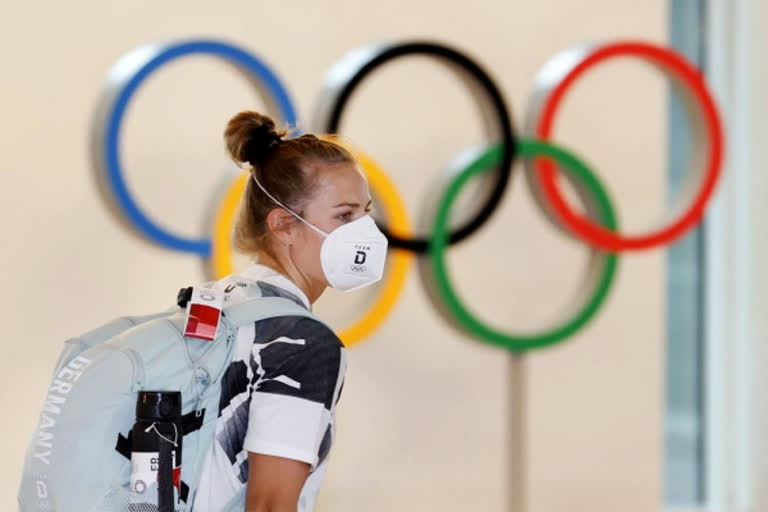Tokyo:The pressure of hosting an Olympics during a still-active pandemic is beginning to show in Japan. The games begin July 23, with organizers determined they will go on, even with a reduced number of spectators or possibly none at all. While Japan has made remarkable progress to vaccinate its population against COVID-19, the drive is losing steam because of supply shortages.
With tens of thousands of visitors coming to a country that is only 13.8% fully vaccinated, gaps in border controls have emerged, highlighted by the discovery of infections among the newly arrived team from Uganda, with positive tests for the highly contagious delta variant.
As cases grow in Tokyo, so have fears that the games will spread the virus. “We must stay on high alert,” Prime Minister Yoshihide Suga told reporters on July 1. Noting the rising caseloads, he said “having no spectators is a possibility.”
Read:AFI names 26-member squad for Tokyo Olympics
Seiko Hashimoto, president of the Tokyo organizing committee, agreed. “It’s not that we are determined to have spectators regardless of the situation,” Hashimoto said Friday.
Organizers, the International Olympic Committee and others are expected to meet this week to announce new restrictions because of the fast-changing coronavirus situation. Amid the criticism, Suga went to Tokyo’s Haneda international airport June 28 to inspect virus testing for arrivals. He vowed to ensure appropriate border controls as a growing number of Olympic and Paralympic athletes, officials and media begin entering Japan for the games.
On Monday, Tokyo confirmed 342 new cases, the 16th straight day of an increase. On Saturday, the capital reported 716 cases, highest in five weeks. At a meeting of government advisers, experts warned of the possibility of infections exploding during the games, projecting daily caseloads exceeding 1,000. They said that would severely strain health care systems. In a worst-case scenario, there could be thousands of infections a day, causing hospitals to overflow, they said.
Ryuji Wakita, director-general of the National Institute of Infectious Diseases and the head of a government COVID-19 advisory board, urged tighter border controls to detect and isolate infected arrivals at airports to prevent infections from spreading from Tokyo to the suburbs.
In a case that has shocked many in Japan, a member of the Ugandan team tested positive upon arrival June 19 at Narita International Airport and was quarantined there. The rest of the nine-member team was allowed to travel more than 500 kilometers (300 miles) on a chartered bus to their pre-Olympics camp in the western prefecture of Osaka.
Days later, a second member of the team from East Africa tested positive for the virus, forcing seven town officials and drivers who had close contact with them to self-isolate. The team itself is isolating at a hotel. Health officials said both infected Ugandans had the delta variant.
On Saturday, an athlete from Serbia also tested positive, causing the cancelation of his team’s training in the central city of Nanto. The government also has acknowledged that four other people arriving for the Olympics tested positive after entering the country earlier this year.
Experts say the cases show that Japan’s border health controls can be easily breached. “There will be more people coming in. … We should use this as a lesson so that similar problems won’t be repeated elsewhere in Japan,” Osaka Gov. Hirofumi Yoshimura told a recent regional governors’ meeting where leaders adopted an urgent request for tighter border controls.
Under revised guidelines on health measures sent to 530 municipalities hosting Olympic training, airport officials will isolate an entire group if any member tests positive, and they will stay at designated facilities until the athletes’ village opens July 12. Hosting towns can request guests to stop training and isolate themselves until they clear contact tracing and virus tests.
Dozens of municipalities in Japan have canceled their hosting arrangements because of virus worries, and many of them decided to use those facilities as vaccination sites.
In Tokyo, infections are spreading among the young and middle-aged who are largely unvaccinated. The more serious cases requiring hospitalization are gradually replacing the elderly, 26% of whom are now fully vaccinated, according to experts.
